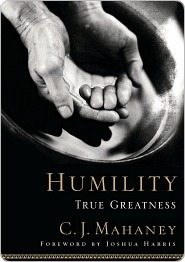More on this book
Community
Kindle Notes & Highlights
But though He’s aware of everything, He’s also searching for something in particular, something that acts like a magnet to capture His attention and invite His active involvement. God is decisively drawn to humility. The person who is humble is the one who draws God’s attention, and in this sense, drawing His attention means also attracting His grace—His unmerited kindness. Think about that: There’s something you can do to attract more of God’s gracious, undeserved, supernatural strength and assistance!
Zain and 4 other people liked this
Our definition of humility must be biblical and not simply pragmatic, and in order to be biblical it must begin with God. As John Calvin wrote, “It is evident that man never attains to a true self-knowledge until he has previously contemplated the face of God, and come down after such contemplation to look into himself.”3
That’s where the following definition can help us: Humility is honestly assessing ourselves in light of God’s holiness and our sinfulness.
WINSTON CHURCHILL, who perfected the art of the clever put-down, once described a political opponent as “a modest little man who has a good deal to be modest about.” The last part of his remark is an accurate description of me—though I can’t say I’m humble, I certainly have much to be humble about! My general ineptness is well known to all who have even a casual acquaintance with me, and that’s no exaggeration.
The real issue here is not if pride exists in your heart; it’s where pride exists and how pride is being expressed in your life.
Martha and 1 other person liked this
Pride takes innumerable forms but has only one end: self-glorification.
“Have you realized that most of your unhappiness in life is due to the fact that you are listening to yourself instead of talking to yourself?”6 That’s profound, and it’s true.
“When we have done anything praiseworthy,” wrote the Puritan giant Thomas Watson, “we must hide ourselves under the veil of humility, and transfer the glory of all we have done to God.”1
In recent years a couple of popular historians, whose writings I’ve enjoyed, were accused of plagiarism in their works. When I saw the reports of it, my initial reaction was to think, How could they? Why would they? But as I reflected on this, I was reminded that every time I claim to be the “author” in my life and ministry of that which is actually God’s gift, I’m committing cosmic plagiarism. And that’s far more serious than any alleged misconduct by those two historians.
Here’s how: Never correct without reminding the individual, at some point, of the gospel. Any conversation including correction must also include the gospel, because biblical correction is incomplete apart from the gospel.
On one occasion, a relative of Dave was visiting, a man who was not a Christian. As he watched Sharon caring for Dave and thought about Dave’s relative youth and the children he would leave behind, anger seemed to well up from within him—anger directed at the God whom Dave and Sharon were professing to believe in. He asked Sharon, “Why aren’t you angry?” She turned to him and answered with the truth of the gospel: “Dave deserved hell for his sins, just like you and me, and yet God, in His mercy, forgave him because of the life, death, and resurrection of Jesus Christ. Dave is going to heaven,”
...more


